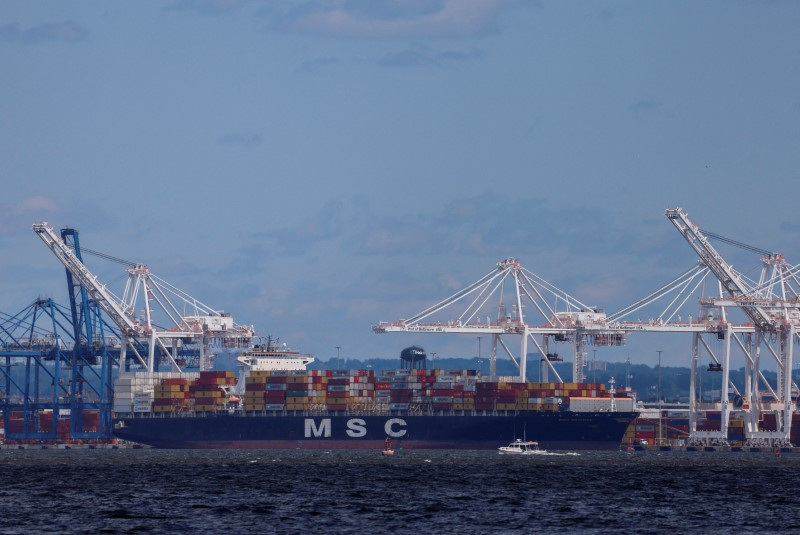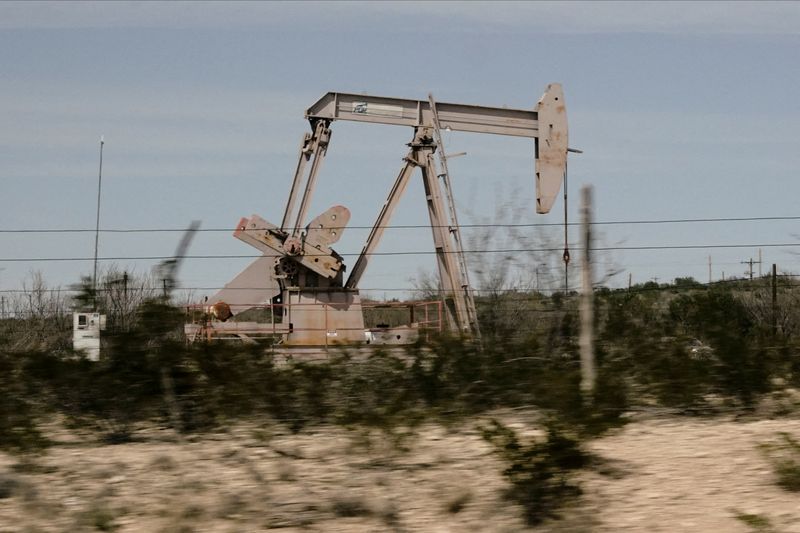
(Reuters) – Some 45,000 union workers could walk off the job at seaports on the U.S. East and Gulf Coasts on Oct 1, cutting off vital trade arteries just weeks ahead of the nation’s presidential election.
A strike would hit 36 ports that handle about one-half of U.S. ocean imports. That could affect availability of a range of goods from bananas to clothing to cars shipped via container, while creating weeks-long backlogs at ports. It could also stoke shipping cost increases that may be passed on to voters already frustrated with housing and food inflation, according to logistics experts.
WHAT’S THE ISSUE?
The International Longshoremen’s Association (ILA) union representing workers at 36 ports from Maine to Texas and the United States Maritime Alliance employer group appear to have hit an impasse over pay. The current six-year contract expires at midnight on Sept. 30.
A strike at all East Coast and Gulf of Mexico ports would be the first for the ILA since 1977.
The White House said it is not trying to help broker a deal, as it did last year during West Coast talks, and a Biden administration official has said the President would not use his federal powers to block a strike.
AUTOS, MACHINERY AND PARTS
Ports in the negotiating group handled $37.8 billion worth of vehicle imports during the 12 months ended June 30, 2024, according to S&P Global Market Intelligence. The Port of Baltimore, Maryland, leads the nation in car shipments.
Auto parts are also a key import on the East Coast and Gulf of Mexico, with shipments from Europe more difficult to reroute than those from China, logistics experts said.
The ports also lead the U.S. in shipments of machinery, fabricated steel and precision instruments, coming in at $97.4 billion, $16.2 billion and $15.7 billion, respectively, S&P Global Market Intelligence data showed.
AGRICULTURE
Three-quarters of the nation’s banana imports from countries like Guatemala and Ecuador land at ports on the East and Gulf Coasts, said Jason Miller, interim chair of Michigan State University’s department of supply chain management.
A strike also would affect container exports of soybeans, soybean meal and other products and would have a significant impact on chilled or frozen meat and eggs, said Mike Steenhoek, executive director of the Soy Transportation Coalition.
The $18-billion-a-year U.S. beef and pork export market and the $5.8 billion poultry and egg export sector relies on refrigerated containers that cannot sit idle for long.
About 45% of all waterborne U.S. pork exports and 30% of beef exports were shipped via East Coast and Gulf Coast ports in the first seven months of this year, said U.S. Meat Export Federation spokesperson Joe Schuele.
More than a quarter of all U.S. egg and egg product exports and around 70% of all poultry meat exports are shipped from ports along the East and Gulf Coasts, according to Customs data and the USA Poultry & Egg Export Council.
CONSUMER GOODS AND ENERGY
Retailers account for roughly half of all container volumes. Many U.S. retailers already have rushed in shipments of year-end holiday goods.
The ports that would be affected by a potential strike bring over half of the nation’s knitted and non-knitted apparel, valued at $32.8 billion combined, as well furniture valued at $23.4 billion, according to S&P Global Market Intelligence.
Though the Gulf Coast ports of Houston and New Orleans are major oil and gas shipment hubs, those commodities would remain largely unaffected by a strike involving more labor-intensive container cargo. The same applies to coal exports from Norfolk, Virginia, experts said.
HIGHER COSTS, BIG DELAYS
In broad terms, a strike would raise costs for shipping while also imposing lengthy delays.
The top five ports in the negotiating group – New York and New Jersey; Savannah, Georgia; Houston; Norfolk; and Charleston, South Carolina – handled more than 1.5 million 20-foot equivalent units (TEUs) valued at $83.7 billion in August, according to John McCown, senior fellow at the Center for Maritime Strategy. About two-thirds of that cargo was inbound, while the remainder was outbound, he said.
Trade disruptions from a work stoppage would begin immediately, sending rates higher and rippling through the U.S. economy, logistics experts warned.

Analysts at Sea-Intelligence, a Copenhagen-based shipping advisory firm, estimated that it could take anywhere from four to six days to clear the backlog from a one-day strike.
Maersk, one of the largest providers of ocean transportation and a member of the employer group, warned that a one-week shutdown could require up to six weeks of recovery time, “with significant backlogs and delays compounding with each passing day.”
This post is originally published on INVESTING.






